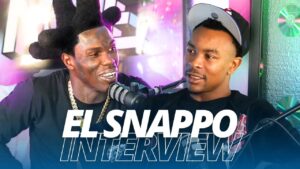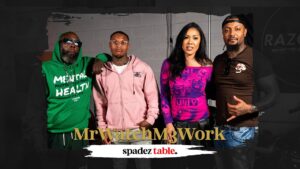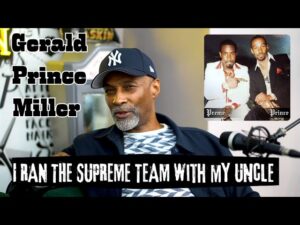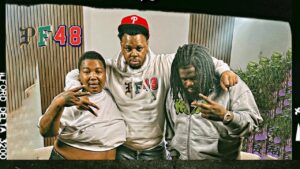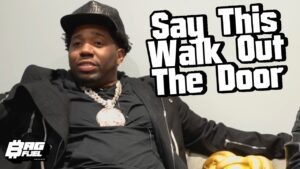In a candid interview with “We Are Florida podcast” presented by Mix-One Essentials, rapper 730 Hurk takes listeners on a journey through his life—from his early days in Orangeburg, South Carolina, to his present-day grind in the music scene. He shares raw, unfiltered stories about his experiences in the Florida prison system and how those years shaped his mindset and career.
Raised in Orangeburg, also known as “W City,” Hurk recalls growing up in a tough, small-town environment. He originally had dreams of becoming a basketball or football star, but music always called to him. Even as a kid, he’d walk around with beats playing in his head, setting the foundation for his passion for rap. Although Hurk began recording music in high school, it wasn’t until after his release from prison 10 months ago that he decided to take his craft seriously.
Hurk’s connection to Florida began when he attended school in the state, but it was during his time in prison that he frequently heard about the Orlando Classic weekend. Determined to experience it once free, he made sure to visit during this year’s festivities.
One of Hurk’s standout moments came when he went viral for his signature “devil eyes” look, which became a defining element of his image. The buzz surrounding his debut song, Last Night In, helped him gain a loyal following. Reflecting on his performances, Hurk says his time spent navigating prison dorms full of hostile strangers prepared him for any crowd. “If I could survive that, performing in front of people who just want to hear my music is nothing.”
Hurk is currently working on a project titled Give Him Hope, set to drop on January 6, marking a year since his release. He describes the upcoming project as introspective, with a focus on heartfelt storytelling aimed at connecting with the streets. “I want to scratch your soul with this one,” Hurk emphasizes.
Despite South Carolina’s lack of mainstream success in the rap industry, Hurk believes things are improving. He highlights the growing sense of unity among artists, though acknowledges lingering tensions rooted in historical rivalries. While names like Young Scooter have made waves, Hurk points out that no artist has truly stamped South Carolina’s identity on the hip-hop map yet.
When asked about his first big investment if he reaches his goals, Hurk doesn’t hesitate—he wants to open a Caribbean restaurant with a close friend, offering authentic island cuisine. Beyond music, Hurk is focused on building something lasting for his community.

